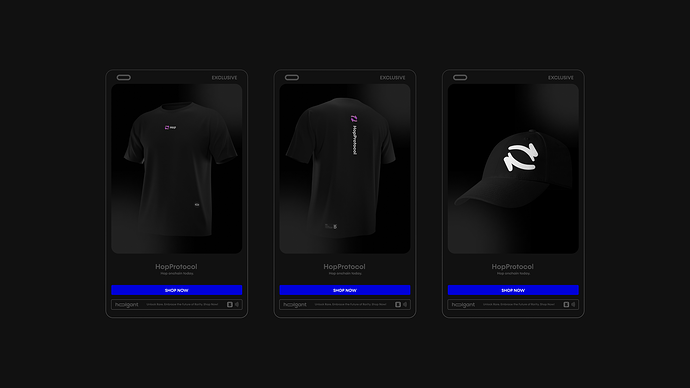The Hop DAO is excited to announce the renewal and redesign of its HOP Grants Program. With a budget of 2,250,000 HOP tokens, the Grants Committee has outlined a series of priority projects that will support the growth and development of the Hop Protocol and its DAO. This initiative marks a significant step forward in enhancing the protocol’s functionality, expanding its reach, and strengthening community engagement.
Grant Program Overview
The HOP Grants Program aims to fund projects that provide tangible benefits to the Hop Protocol and its ecosystem. The Grants Committee has curated a Request for Proposals (RFP) list, reflecting key areas where innovation and development are most needed. However, this list is not exhaustive, and the Committee welcomes all applicants with innovative ideas that align with the protocol’s goals, even if their proposals are not explicitly mentioned in the RFP list.
RFP Categories
Developer Initiatives:
Hop v2 Enhancements: As Hop v2 approaches its public release, projects focusing on enhancements and interoperability are highly encouraged. These could include improvements in scalability, security, and user experience that ensure a smooth transition to the new version.
Marketing Efforts:
Community Awareness Campaigns: Proposals for campaigns that spread awareness about Hop, particularly highlighting that it currently offers the cheapest USDC routes, are needed. This could involve organizing ‘quest’ campaigns to engage users or supporting large-scale crypto events to increase visibility.
Community Tools:
Automation Tools: Development of tools like a scanning tool for delegate incentive reporting or a Discord bot to automate minute-taking during bi-weekly calls.
Dashboard Creation: A maintainable Dune dashboard or similar tool that tracks all relevant Hop Protocol metrics, including fees, unique users, and daily transactions.
Governance Enhancements: Proposals that aim to decentralize governance, such as an effective way to migrate Tally votes off the L1 network, or other tools to motivate users to redelegate tokens to active delegates.
Cross-Protocol Innovations:
Airdrop Tracker: A tool to track airdrops across various networks and projects, with integration capabilities for Hop.
How to Apply
Interested applicants are encouraged to submit their proposals through the designated thread in the Hop DAO forum. The application should include a detailed description of the project, its anticipated impact on the Hop Protocol, and a budget outline. The Grants Committee will review all submissions and provide feedback, with decisions communicated directly to the applicants. Please see the below RFP details required for submission.
This RFP list is subject to change based on community feedback and any updates to the Hop Protocol. The Committee also invites the community to suggest additional RFPs that could further benefit the Hop ecosystem.
This is a unique opportunity for developers, marketers, and community members to contribute to the future of Hop. We look forward to receiving your innovative proposals and supporting projects that will drive the protocol forward.
For more information, visit the Hop DAO forum and stay tuned for updates. Questions can also be directed to the Hop Discord community or X account. For questions on the Grant program, or to get feedback on your proposal before submitting, reach out in the grants channel in Discord or DM grant committee members on @BobRossiETH, @rxpwnz, or @ManyFaceChase on X.
Required RFP Submission Details:
Project Name:
Project Description:
Project Links:
Team Member Roles & Background: (Provide applicant background and relevant ecosystem contributions)
Contact Information:
RFP Category:
Requested Grant Size & Justification: (Justify funding alignment with project’s scope)
Grant Objectives & Purpose: (Clearly align the proposal with protocol and/or DAO goals)
Project Benefit to Protocol or DAO: (Explain strategic relevance and potential impact)
Proof of Concept/MVP: (Demonstrate feasibility, if applicable)
Grant Execution Strategy:
- Methodology:
- Milestone Plans: (Breakdown deliverables and timelines)
- Risk Assessment: (Identify challenges and mitigation strategies)
- Metrics for Success: (Define measurable KPIs)
Additional Information, If Needed:
